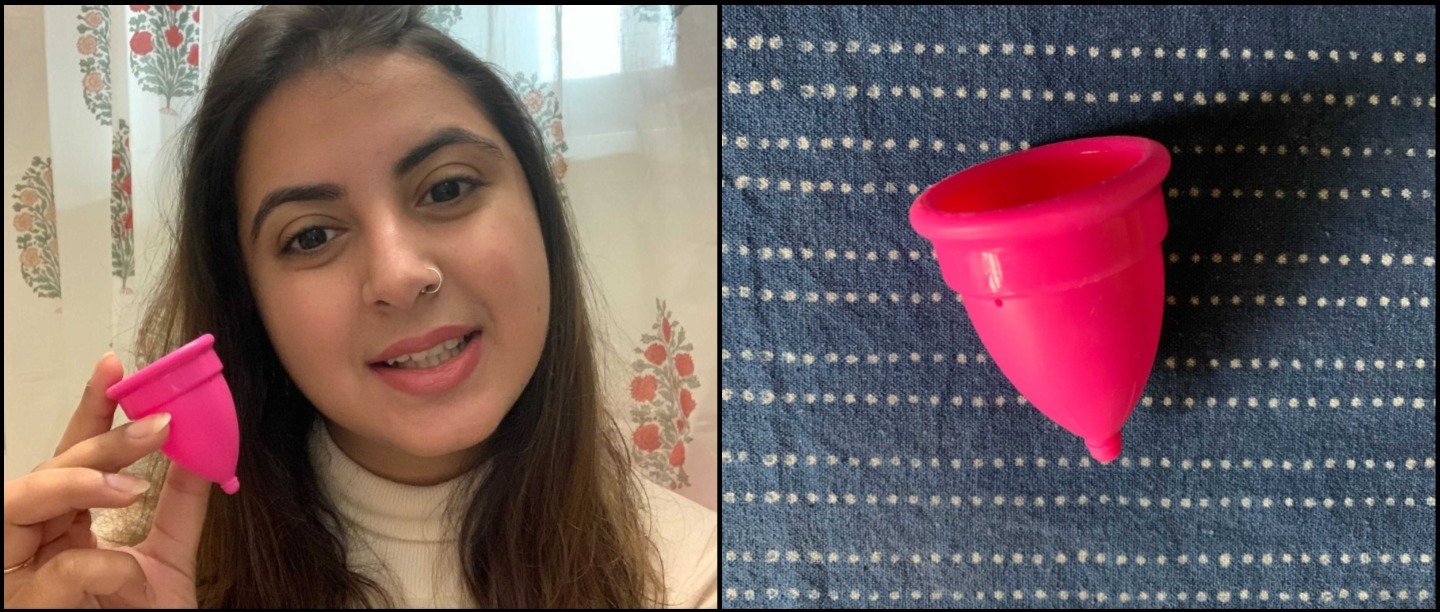
I still remember the day I had my first period and I suppose we all do. It was during the summer break in the seventh standard when I noticed some blood on my underwear but I wasn’t sure if it was my period or if I had hurt myself. I rushed and called my mum who told me that I was indeed menstruating. My father went and bought sanitary pads for me and I have used them ever since. I did have a stint with tampons too and sometimes for extra protection wore both tampons and pads together.
However, after reading a bit about sanitary pads and on seeing the statistics, I did get really worried. Did you know that nearly 121 million women in India use an average of eight sanitary napkins per menstrual cycle? That makes it to one million pads generated monthly. This further translates to 12 billion produced and disposed of in India alone. A report by Water Aid India and the Menstrual Hygiene Alliance of India said that depending on the materials used in the manufacture of the pads, it could take up to 800 years to decompose a single sanitary pad.
Let that sink in—800 years to decompose a single sanitary pad.
For this reason, I moved to more sustainable options.
In 2020, I Vowed To Switch To A Menstrual Cup And Haven’t Looked Back Ever Since
When I first heard about menstrual cups, I’m not gonna lie, I was a little grossed out. A cup that goes inside you and collects your blood just didn’t sit well with me. I was apprehensive of it even fitting inside me but once I tried it out I was completely sold on the product.
Firstly, a single menstrual cup can last up to 10 years so it does not only save you from having to scramble for a pad every time but also saves you a lot of money. You can keep the cup inside you for up to twelve hours without requiring to empty it which makes it really useful when you’re travelling. It also holds more liquid. Normal tampons hold between six and nine grams of liquid whereas this holds about 28 grams. That’s a huge difference!
Popxo Recommends:
Sirona Reusable Menstrual Cup with Pouch for Women
The Sirona Reusable Menstrual Cup with Pouch for Women offers a practical and comfortable solution for menstrual care. Designed for medium flow, this foldable cup provides up to 8-10 hours of protection, ensuring leak-free and odour-free wear. Made from rash-free, body-safe materials, it’s gentle on sensitive skin while offering reliable, long-lasting protection. Conveniently comes with a pouch for discreet storage and easy portability. Choose this menstrual cup for a sustainable, hassle-free period experience that combines comfort and confidence.
Another great thing about them is that they don’t contain latex, BPA, dye, or other addictives which many pads and tampons do. They are rash-free, so you can say bye to those really painful sanitary pad rashes for good. They’re also obviously more environment-friendly than both pads and tampons.
But the reason I loved the switch to a menstrual cup so much is that it really helped me understand my body better. I learned more about my flow and period and that’s something I’ve really appreciated. It is my body, after all, I should know these things!
What Was The Experience Like?
TBH, the first time I inserted the cup, I did panic a little. I really did think I wouldn’t be able to get it out, ever. I pulled hard but it didn’t seem to work. However, after trying a few different positions and I finally settled on one leg on the pot seat, it did work.
The process was also a bit messy so fair warning, having clean water is a necessity in this situation. After getting used to it and figuring my way around it, I became a pro. There were a few leaks along the way because I hadn’t inserted it properly but now all that’s done with.
The amazing part is how there just isn’t any waste generation- no tissues and newspapers for wrapping tampons and pads in, no plastic bags being thrown in the trash. Ah, what a relief.
How Do You Keep The Menstrual Cup Clean?
When you first get the cup, sterilise it in a pot of boiling hot water and then use it. Make sure your hands are washed with soap before and after inserting it. Between uses when you’re home, you can remove it, drain out the water and wash it with a mild, oil-free, fragrance-free soap before inserting it again. This removes the bacteria and build-up from it. If you’re out travelling with no clean water supply or bathroom, dig a hole in the ground to drain the blood and then wash it with bottled water.
Most menstrual cups come in pouches, so store them in a cool and dry place. After every use, remember to sterilise the cup by putting it in boiling hot water. Special sterilising products are also available in the market but boiling water works perfectly fine.
Menstrual Cups That You Can Try
For More Information, Watch This Video:
Now I know that the general taboo around periods and especially against putting things inside is the reason many women are skeptical to make the change. But personally, it’s been the best thing for me and those five days aren’t as bad anymore. It’s safe to say, I’m never going back to pads or tampons again!
Images: Authour’s Own
Read More From Health
Ananya Panday On Being Called ‘Chicken Legs’ and ‘Flat Chest’ In School & Why We Must Talk About It
Isha Jain